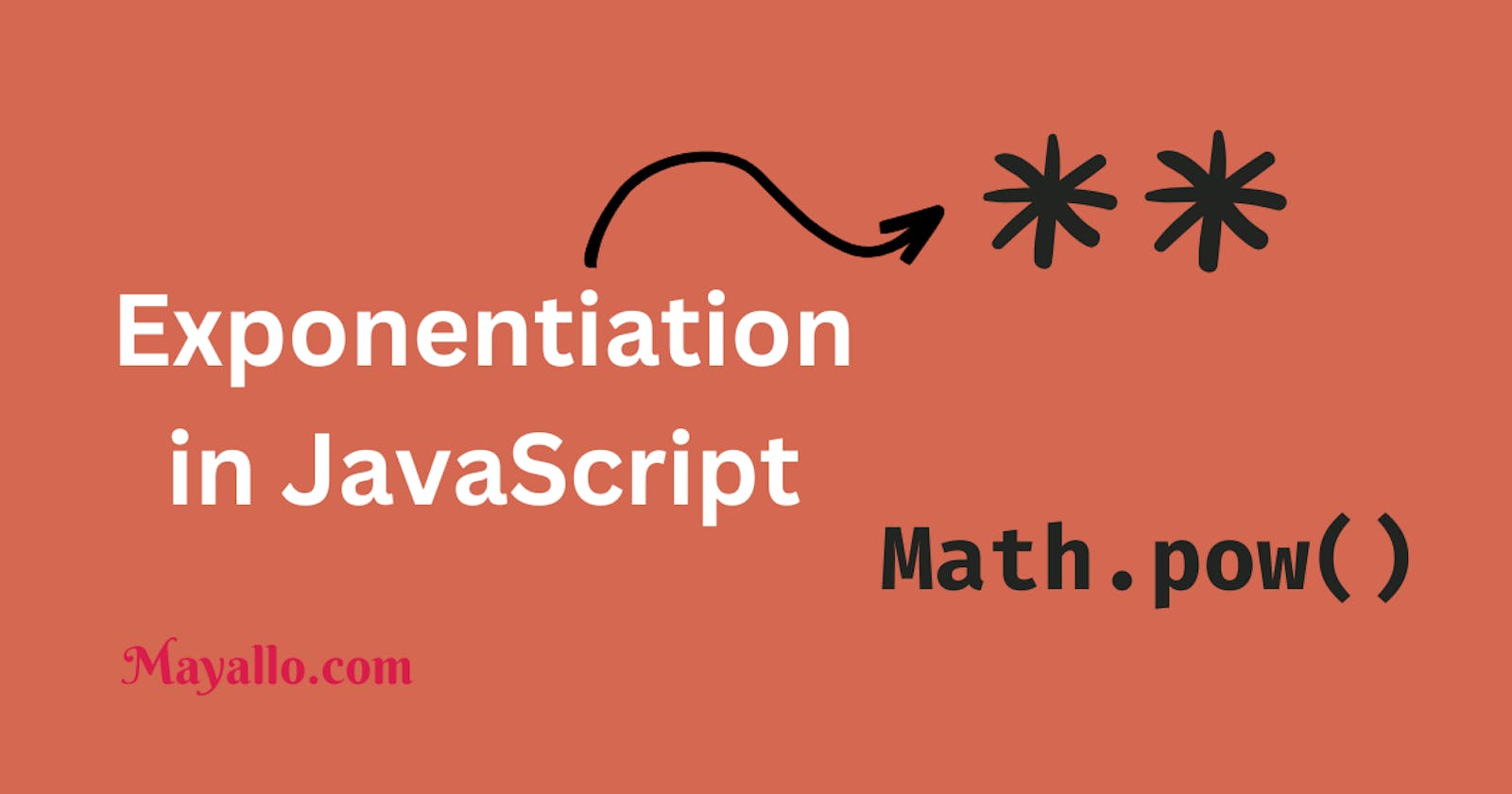Exponentiation in JavaScript: A Beginner’s Guide
In JavaScript, you can perform the exponentiation process using the ** operator or Math.pow() method.
Introduction
Exponentiation refers to a mathematical process of multiplying a number by itself, raised to the power of another number.
If, for instance, we raise 2 to the power of 3, we calculate it as 2 * 2 * 2, which gives us the result of 8.
In JavaScript, you can use either the ** operator introduced in ES6 or the method Math.pow() when evaluating exponents.
Before starting, please keep in mind that this operator
^is the Bitwise XOR Operator. Don't use it for exponentiation, as it is a common confusion.
Using The ** Operator
The ** operator is used to perform exponentiation in JavaScript. It takes two operands: the base and the exponent.
The base (the left-hand side) is the number that is being raised to power, and the exponent (the right-hand side) is the power itself.
Have a look at the following example:
let result = 2 ** 3; // 8
In this example, 2 is the base and 3 is the exponent. The ** operator raises 2 to the power of 3, which is 8.
The Precedence Of The ** Operator
Keep in mind, the ** operator has higher precedence than the multiplication and division operators.
This means that if you have an expression that includes both multiplication and exponentiation, the exponentiation will be evaluated first.
Here’s an example:
let result1 = 2 * 3 ** 2, // 18
result2 = (2 * 3) ** 2; // 36
In this example, regarding result1, 3 is raised to the power of 2 first, resulting in 9. Then, the multiplication is performed, resulting in a final value of 18.
But if you want to precede the multiplication operator in the case of result2, you have to enclose the multiplication operation between ().
Another example, if you want to find the nth roots:
let result1 = 8 ** 1 / 3, // 2.6666666666666665
result2 = 8 ** (1 / 3); // 2
Using Math.Pow() Method
In addition to the ** operator, JavaScript also provides the Math.pow() method for performing exponentiation.
Like the ** operator, this method takes two arguments: the base and the exponent.
Here’s an example of how to use Math.pow():
let result = Math.pow(2, 3); // 8
In this example, 2 is the base and 3 is the exponent. The Math.pow() method raises 2 to the power of 3, which is 8.
Math.pow() Method vs ** Operator
Actually, there is a slight difference between them regarding the BigInt type.
The Math.pow() method doesn't support the BigInt type, however, the ** operator supports it. Take a look at the following example:
let result1 = 2n ** 4n, // 16n
result2 = Math.pow(2n, 4n); // Uncaught TypeError: Cannot convert a BigInt value to a number
In JavaScript, the
BigIntis created like2norBigInt(2)
Which One Should You Use?
As you saw, there are no big differences between Math.pow() and the ** operator.
However, if you work with BigInt values, go ahead with ** operator, rather than such a case use whatever you want.
Keep in mind, if you chose the ** operator, just take care of the precedence.
Conclusion
Exponentiation is a fundamental mathematical operation. And, in JavaScript, exponentiation can be performed using the ** operator or the Math.pow() method.
In this article, we knew how to use both, the ** operator and the Math.pow() method.
Then, we knew that there are no big differences between them, so it is up to you to use either of them.
Before you leave
If you found this article useful, check out these articles as well:
Thanks a lot for staying with me up till this point. I hope you enjoy reading this article.

